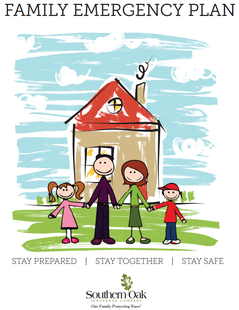 As we are now well into September and as fall begins to set in, hurricane season or hurricane preparedness is probably the furthest thing from your mind. Hurricane season actually started on the first of June and will run right up until the end of November when storm season comes to an end.
As we are now well into September and as fall begins to set in, hurricane season or hurricane preparedness is probably the furthest thing from your mind. Hurricane season actually started on the first of June and will run right up until the end of November when storm season comes to an end.
It has been a few years now since a major hurricane or significant super storm for that matter swept through coastal or inland America during storm season but as with all things of nature the risk is ever present.
With this in mind it is of the utmost importance to exercise ongoing hurricane preparedness. Here are ten facts about hurricanes that we hope will motivate you to start prepping today!
- Tropical storms that reach a speed of 74 miles per hour or more are classified as hurricanes. The energy released per second from some of the bigger hurricanes can be equivalent to that of an atomic bomb.
- Hurricanes often result in many fatalities due to sea water moving inland and causing many areas to flood.
- There is a three hundred year old hurricane on the planet Jupiter that is bigger in size than the entire earth.
- Florida is the most prone state to hurricanes, experiencing at least 40% of all that occur throughout the country. Not surprisingly, Florida is also the state with the most expensive homeowners insurance and year after year, millions of dollars are spent on hurricane preparedness.
- Hurricanes are categorized from one to five. Category one hurricanes starting at a speed of 74 miles per hour and category five hurricanes going up to 155 miles per hour.
- Hurricane Katrina was classified as a category five hurricane and caused damage of over $100 billion.
- Stronger hurricanes are capable of reaching up to 50,000 feet in the air.
- A hurricane that occurred in Bangladesh in 1970 killed one million people and was the most severe in terms of loss of life.
- Regionally, the eastern Pacific Ocean, Caribbean Sea, southern Atlantic Ocean and Gulf of Mexico are the most prone to hurricanes.
- Hurricanes kill more people than any other force of nature and being adequately prepared is vitally important.
To start you off with a plan of action here are a few key supplies to have in case of a hurricane: A three day supply of water minimum, non-perishable food, first aid kit, medicines, extra cash, blankets and sleeping bags. Click for a guide to creating a comprehensive disaster supply kit.
In terms of homeowners insurance, it is extremely important to have adequate coverage. Carefully consider the following:
- Basic coverage: you will require the most comprehensive coverage to replace lost or damaged goods in the event of total loss due to storms, theft or an accident.
- Special coverage: you will require to be insured against any and “hopefully” most natural disasters. This is largely dependent on your insurer as some exclude homes that are located in certain areas or built in a certain manner.
With the major changes to our ozone layer and the advent of global warming, any season could be hurricane season so be sure to be prepared to keep yourself and your family safe. Download our free Family Emergency Plan

















